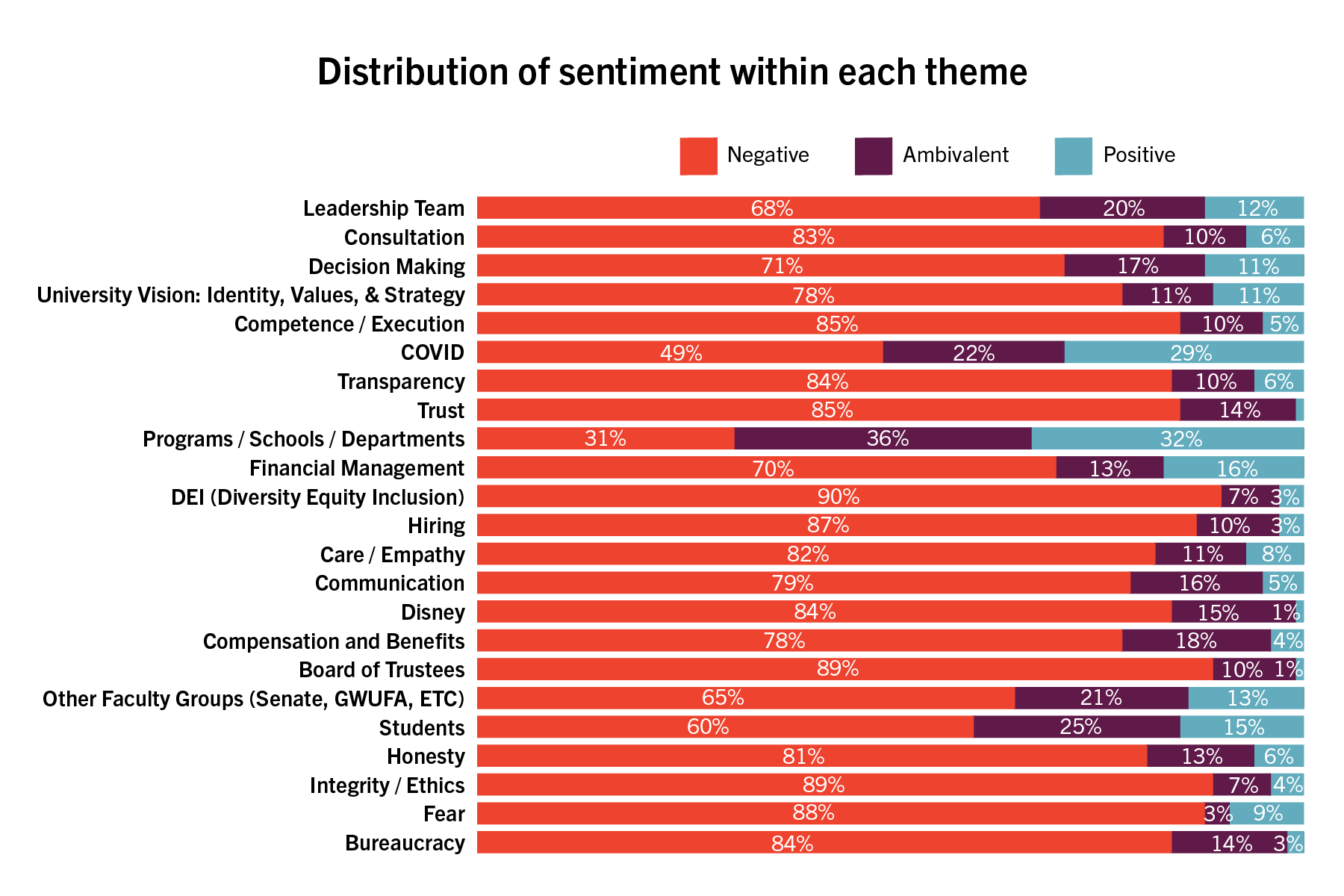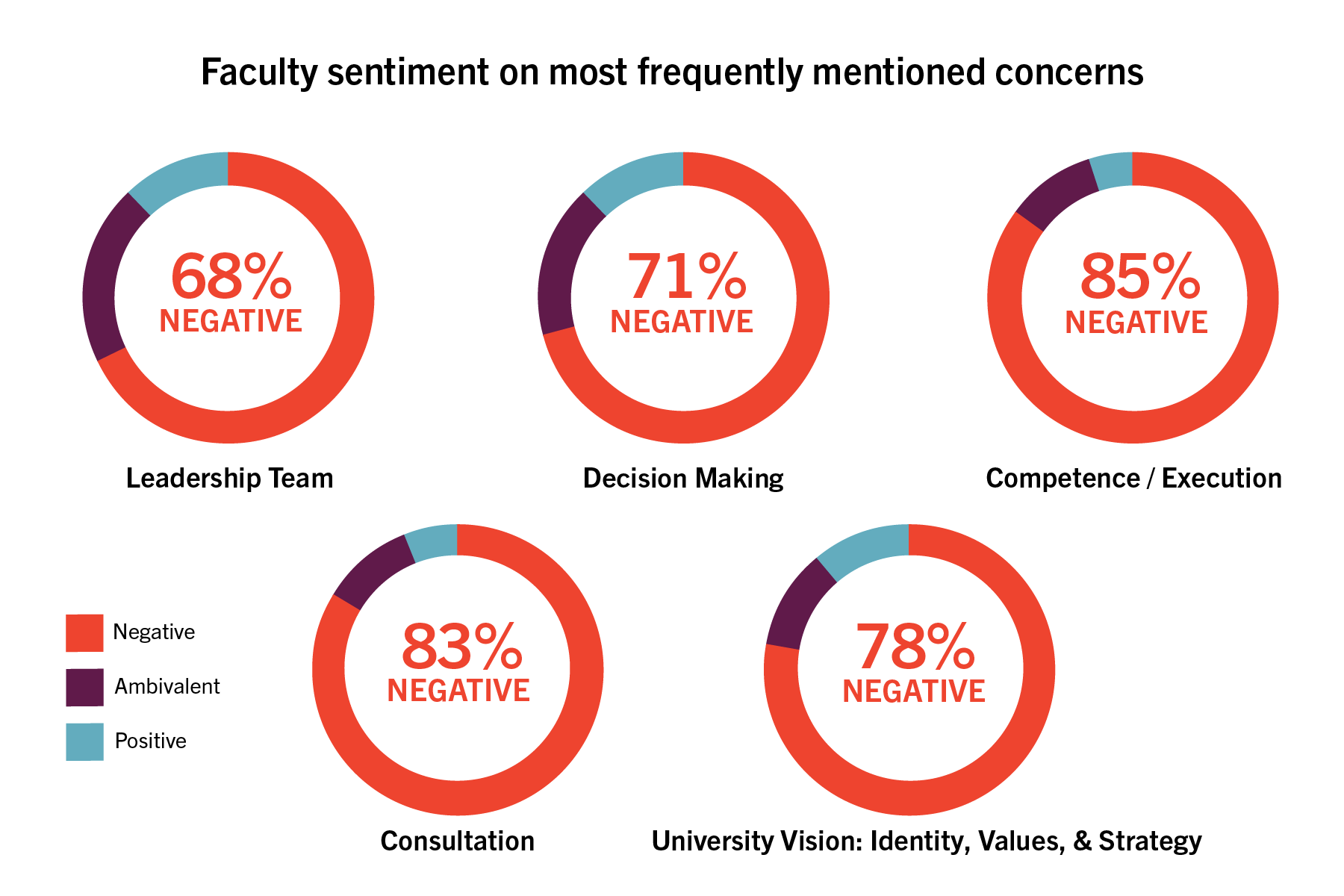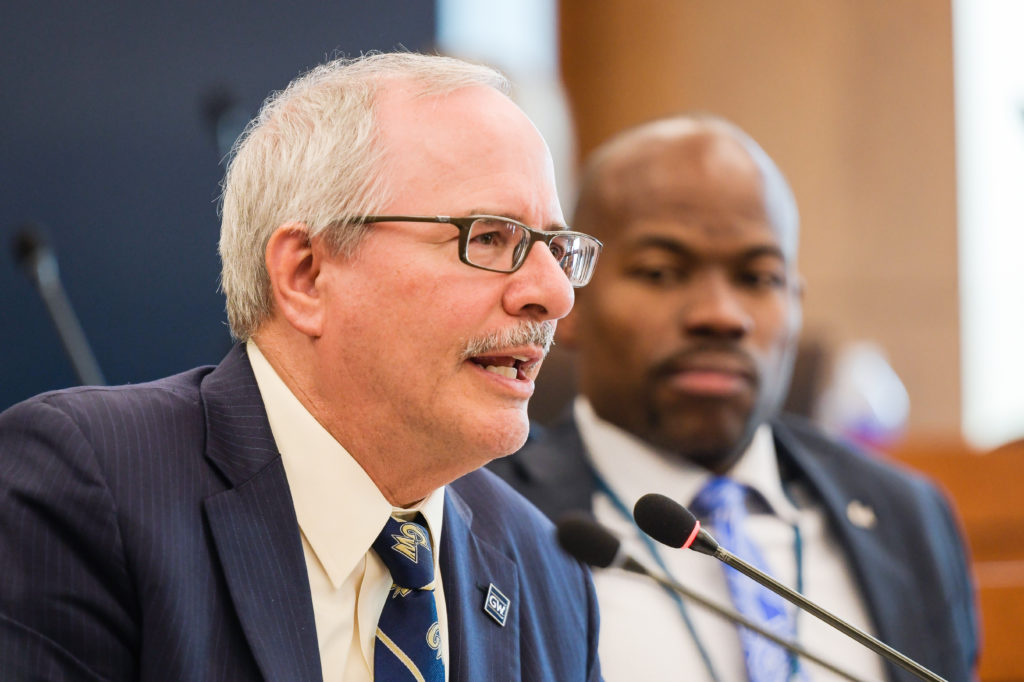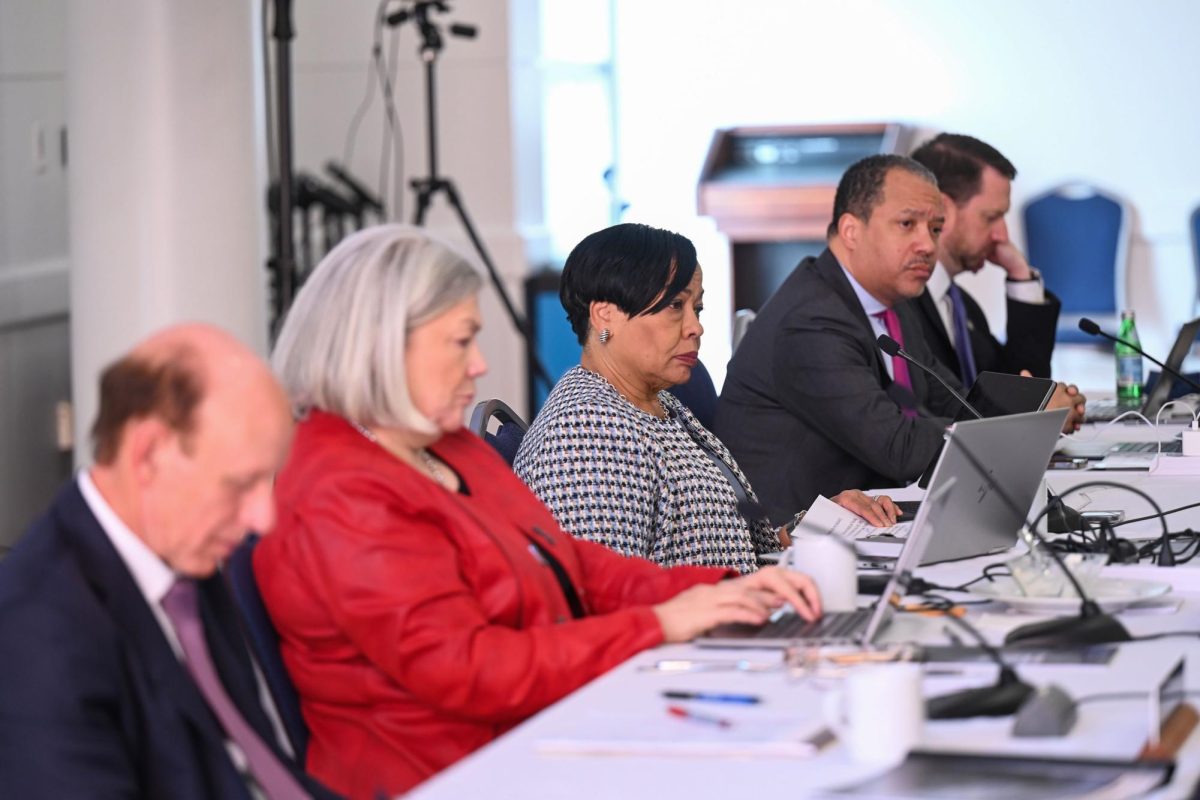Professors expressed “overwhelmingly negative” views of GW’s leadership and campus climate in a recent faculty-wide survey, raising concerns over major University initiatives and a lack of collaboration, documents reveal.
Faculty noted GW’s leadership team, consultation, decision-making, University vision and competence as their top five concerns, according to an analysis conducted by the group of faculty managing the survey, which was obtained by The Hatchet. The widespread concerns in the more than 4,000 qualitative faculty responses address administrators’ “overall capacities, values and performance,” the group said.
“To my mind, the single biggest problem is that [University] President [Thomas] LeBlanc is not the right person to lead this institution: three years in he still does not seem to grasp who we are as a University at our core,” one professor wrote. “Bringing Disney in to build a new culture demonstrated how little faith he has in the students, faculty and staff to lift up and build on our strengths and face our weaknesses. It’s a shame because in crisis times like this we needed someone who ‘gets us’ and has the vision to secure our future.”
Faculty approved the survey’s launch in November after tensions rose with administrators over enrollment and hiring decisions. The survey garnered responses from 1,223 professors – a majority of full-time faculty – and 734 of the respondents wrote answers to at least one of the eight open-ended questions, the documents show.
The survey’s quantitative results were distributed to full-time faculty in late February, finding that a slim majority of respondents had lost confidence in LeBlanc’s leadership.
A group of seven Faculty Senate members – led by the director of the Discourse Laboratory, a GW anthropology research lab that analyzes dialogue – examined the qualitative responses. They identified the five “key” concerns out of 22 various themes, like the COVID-19 pandemic and financial management, based on frequency and sentiment. Concerns about the pandemic ranked sixth.
The senate’s executive committee will meet on Friday to discuss recommendations based on the survey’s results.
The survey team found that faculty sentiments from each of GW’s schools and colleges were more negative than positive, and the results did not vary significantly between faculty ranks.
“That the predominantly negative sentiment toward the leadership is characterized by diversity and variation should not be a surprise, given the variety of the schools, programs and individuals represented in the responses,” the group concluded. “What is more impressive, however, is how the survey responses carefully, repeatedly and with remarkable acuity, circle around and are interwoven with certain key themes.”

Nicholas Anastacio | Staff Designer
The group distributed the report digitally to the Board of Trustees, top officials and full-time faculty earlier this month, inserting a watermark containing a timestamp and the viewer’s University email address to prevent the documents from being leaked publicly.
The Hatchet received the documents from an authorized viewer under the condition of anonymity because they were not permitted to share its contents. The Hatchet has chosen not to publish the documents to maintain the source’s anonymity.
A University spokesperson declined to comment, pointing to the announcement of the Board’s standard review of LeBlanc taking place this spring. An outside consultant assisting with the review will consider the survey results, the announcement states.
The Faculty Survey Team did not return a request for comment.
When asked what ways LeBlanc’s performance has been better than expected, which the group said was phrased to elicit positive responses, nearly half of the responses still included negative evaluations of LeBlanc. Many respondents mentioned a string of top hires from the University of Miami, where LeBlanc formerly worked, and a lack of trust in his leadership.
“He hasn’t sold the Foggy Bottom Campus and asked us to move to Florida,” one professor responded to the question.
Some faculty said LeBlanc’s performance exceeded expectations in three areas – GW’s public health response to the pandemic, University operations and the Medical Faculty Associates reorganization – although the group concluded that acknowledgement is “not strong,” according to the analysis.
“I believe that the president made good decisions with the best information available at each point and adjusted accordingly as time went on,” a professor wrote.
The team classified each qualitative response as positive, negative or ambivalent and tagged them with any applicable topic from the list of the 22 themes.
“Backed by a remarkable level of inter-rater agreement among the qualitative data analysis team, these conclusions hew close to the evidence, which is copious and tends to ‘speak for itself,’” the group wrote in the analysis.
The survey’s results indicated the School of Medicine and Health Sciences faculty had the most positive sentiments but still submitted more negative than positive responses.

Nicholas Anastacio | Staff Designer
The group classified 68 percent of the 1,001 written comments that related to GW’s leadership team – the most frequently mentioned concern – as negative sentiments while grouping just 12 percent as positive. Faculty said officials’ decision-making did not support GW’s research and teaching missions, and LeBlanc’s communication did not reflect the University community’s values or demonstrate empathy.
“Faculty are concerned about the members of the leadership team, how the central leadership team and those who immediately report to them were recruited (‘Miami’), their lack of accountability and transparency [Chief Financial Officer Mark Diaz], inappropriate rhetoric (‘need a neck to wring’), deceitfulness [Provost Brian Blake], nepotism and cronyism (‘Miami’),” the analysis states, referencing specific descriptors in parentheses.
The deans were characterized in a positive way, according to the analysis. Positive comments about GW’s leadership specifically mentioned LeBlanc or Blake in some cases, but Diaz – who was mentioned 62 times – and other leadership were never mentioned in a “positive light,” according to the documents.
“The positive comments on the leadership team were not only fewer in number, they were less diverse in content and form, and more repetitive,” the survey team wrote. “The most common phrase was ‘good job’ and did not refer to specific achievements.”
Just 1 percent of responses mentioning the Board were classified as positive while 89 percent of responses were negative, the documents show.
Faculty also perceived the 20/30 Plan as a “failed rollout” and raised concerns about their lack of involvement in its development. Professors also highlighted the hiring of Heather Swain as an example of a lack of consultation with faculty, honesty and transparency, the analysis states.
Swain withdrew from the hiring process amid widespread concern over her involvement in the Larry Nassar sexual abuse case.
“We have no plan,” one faculty member wrote. “Not even a business plan. We have no plan. I don’t mean some high-flying ‘Strategic Plan/Initiative’ – just a simple reachable goal, developed jointly and supported. We think one thing today, another tomorrow.”
The survey team also said faculty concerns about University leadership predate the pandemic, like with criticism of GW’s partnership with the Disney Institute as early as 2018.
“This is not about the pandemic; the pandemic is distracting us from the real problem: the president, provost and CFO,” a professor wrote.








